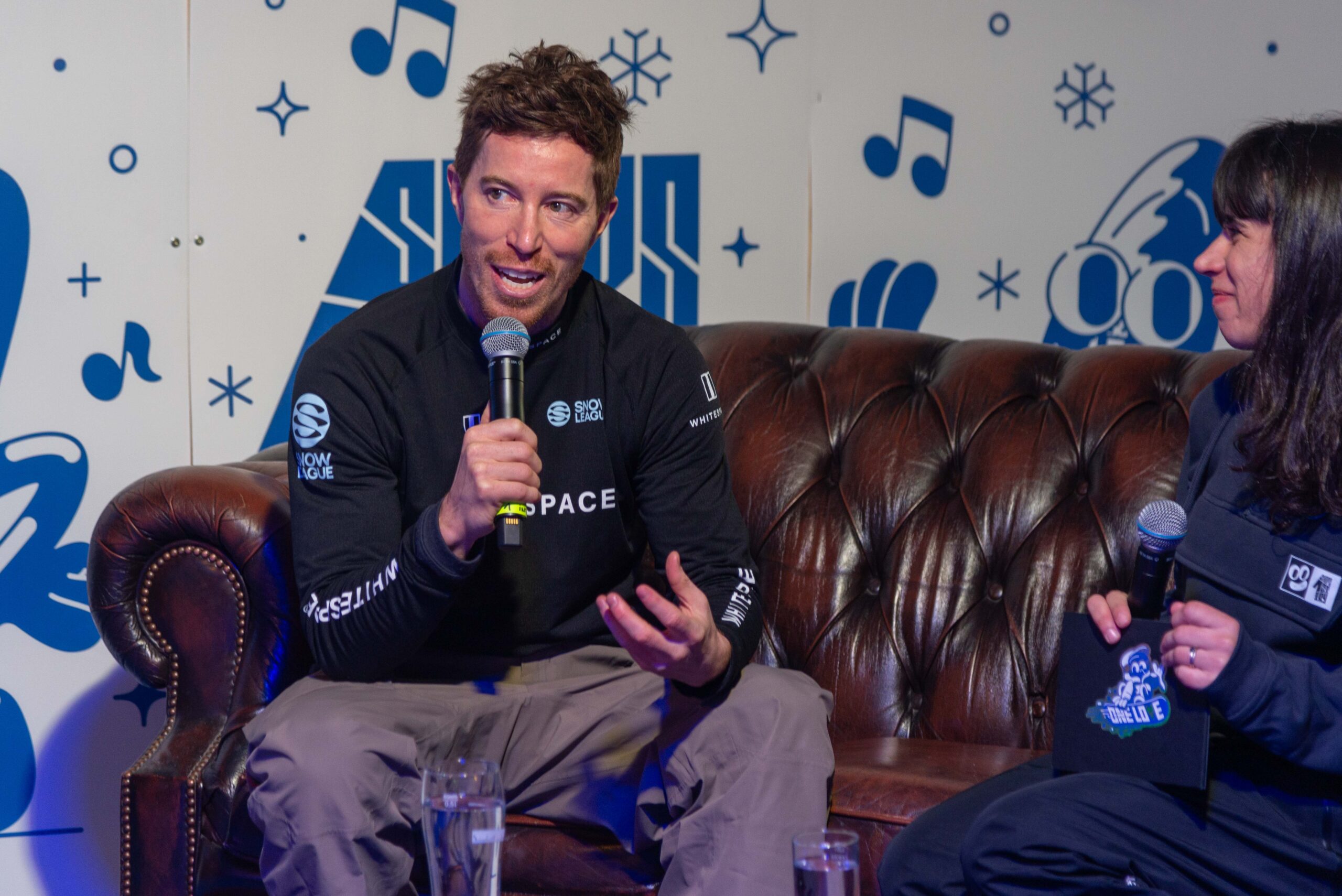
Filling the Void: Shaun White, After the Medals
Interview and words by Alba Pardo There is a familiar way Shaun
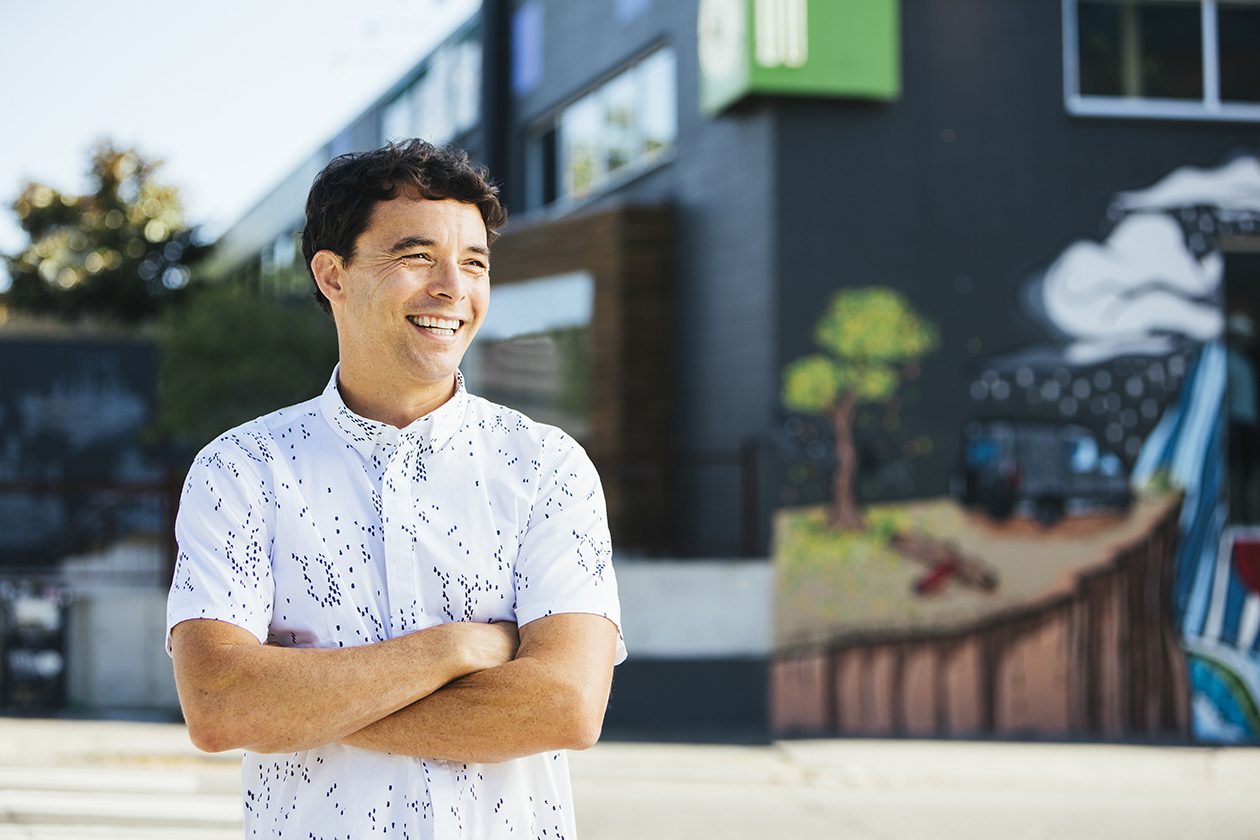
How Evo is transforming the playing field, one hotel at a time.
WORDS Anna Dimond | PHOTOS J. Watt & We Are Unicorns
In 2004, a new kind of hotel opened in South Lake Tahoe. It was called The Block, and it catered specifically to snowboarders. Rooms were equipped with snowboard racks and boot dryers. There were Xbox consoles and hangover kits to recover from wild, altitudinous nights. Free cans of Red Bull packed lobby fridges, and free wifi was on offer – a big bonus at the time. Big murals of busty women hung on the walls, as did silhouettes of its then-famous owner, pro snowboarder Mark Frank Montoya (MFM).
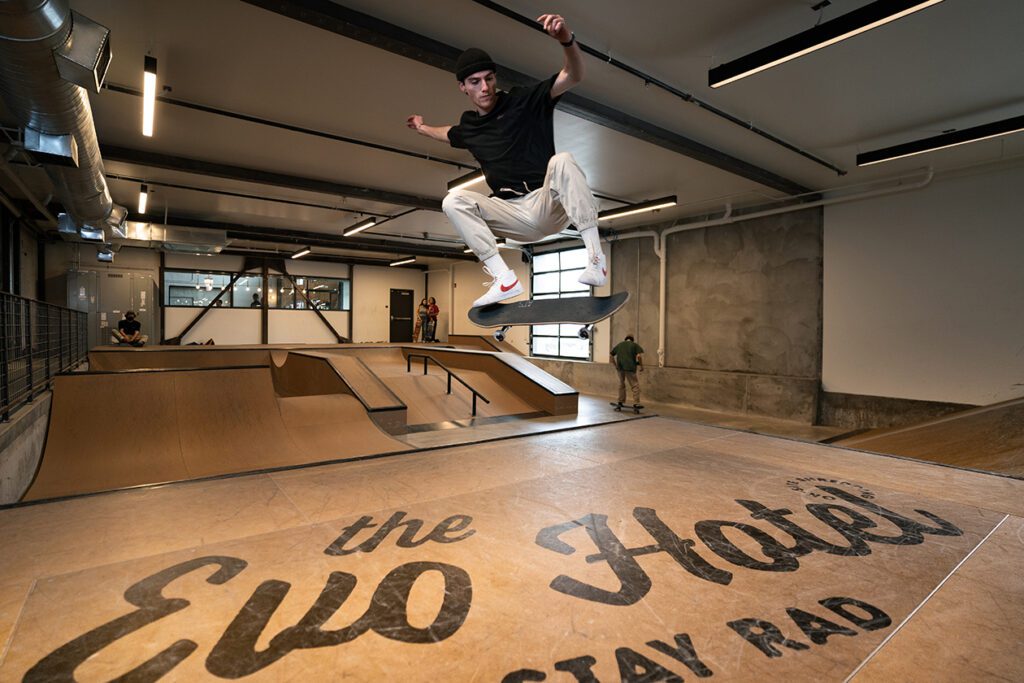
It was a paragon of cool. And I desperately wanted to go there.
But The Block, I knew, wasn’t made for me. In fact, I came to think of it as a “bro-tel,” designed for the typical snowboard enthusiast. That is to say: white, male and young.
So when I was invited last year to stay at the evo Hotel Salt Lake City, another snow-centered venue, I braced myself. Now 45, what I would wear was one mini-crisis. The prospect of riding with a cohort of expert-level press was another. But most of all, despite two decades of snowboarding under my bib, I feared that simply setting foot in the snowboard-chic hotel would cast me as well past my sell-by date for cool.
Except, I was wrong. During my visit, instead of bar stools of goggle-tanned dudes comparing clips of big hucks, there was a family playing cornhole in the hall. Instead of a climbing gym dominated by packs of pubescent boys, there were mixed-gender groups of friends, kids and couples, all getting in workouts. Red Bull was conspicuously absent. But oat milk lattes, fresh from the lobby café? Available all day, every day.
Best of all, instead of a cooler-than-thou staff – the type that once populated snowboard shops and resorts – every person behind every counter was noticeably friendly. One staffer who was likely born during President Obama’s second term, even offered to bring more toilet paper to my room. Zero irony detected. Over the course of my stay there, I slowly let my guard down. I chatted with the rental-shop folks. The latte-maker. With other journalists. In short, I felt like I belonged.
None of this, says evo founder Bryce Phillips, was accidental.
“We want people to feel welcomed and unintimidated – just straight-up good,” he says. “No matter who they are. What they know, what they don’t know, what they look like.’
Phillips launched Evo in 2001 as an online retail hub for snow and wakeboard equipment (it’s since swapped wake for MTB gear).
Hometown mountain to ski-town mogul
Phillips’s commitment to inclusion traces back to his childhood in Roseburg, Oregon, about three hours south of Portland. His father, who as a child emigrated from the Philippines, managed safety at a nuclear plant. His mother is white, from the US, and taught Spanish. While Roseburg is predominantly white, Phillips doesn’t recall feeling different or singled out. Instead, it was socioeconomic diversity more than racial differences that made an impression.
“Roseburg is a blue-collar logging town,” he says. “It’s lower income. We didn’t have very much, but I had friends who had nothing. And that is directly connected to the causes we get behind as an organization – working with underserved youth – because I saw and experienced things through friends that I just wouldn’t have ever imagined were possible. The economic side like poverty, drug abuse – I saw that.”
Alongside what he was exposed to, how Phillips first experienced the world of snow sports also shaped his approach to the snow-world business. When he was about 10, his uncle took him skiing at nearby Mt. Ashland, a registered non-profit that still sells lift tickets for under $100 – a rarity in the US. Yet even then, he knew he never would have tried it if his uncle hadn’t footed the bill. The expense, he recalls, was a visceral hurdle.
The other thing that Phillips remembers about his start on snow? Immediate, irrevocable love.
“I was like, ‘I need to figure out how to do this as much as possible,’” he says.
The imprint of those experiences are visible throughout evo’s hospitality experiences and its philanthropic efforts. In 2022, the company made a $10 million pledge over 10 years to women and BIPOC led organizations that help people from underrepresented communities access the outdoors. The company also runs a couple of skateparks called All Together Skatepark (ATS) – there’s one in the Seattle store and another in SLC – that offer free equipment and lessons to those that need it.
At the evo Hotel SLC, ATS sits at the front of the building and offers a view inside through plexiglass behind the hotel desk. During my stay, the hum of wheels rolling up and down the indoor bowls, the smack of decks on concrete, and occasional kids’ chatter were a cheerful, steady soundtrack. Again, evo’s skateparks weren’t a casual addendum, but a conscious way to invite more people into the culture that the brand cultivates, celebrates, and sells.
“Skate is our front porch to introduce people to this love of recreation, and getting outside and playing,” says Tommy Trause, head of hospitality, community marketing, and ecosystem development for evo. “That’s why we hold it so near and dear to our hearts.”
Socioeconomics, says Trause, is a key part of skateboarding’s role for evo. “We understand [mountain sports] are expensive no matter what we do,” he says. “We can put a kid on a skateboard very easily, as opposed to a $2,000 mountain bike.”
Skateboarding, for Evo, also represents its attitude toward other types of demographics – age, gender, and race among them. The types of demographics that, for snowboarding, have long been narrowly defined as the target customer.
“There are preconceived notions of skate being these tattooed bros,” says Trause. “So we are very intentional about making skateboarding the entryway.” At evo SLC, unscientific field observations confirmed Trause’s point. The skaters were a cross-section of ages, races, and genders. The indoor park looked like a clubhouse for any and every kid – no secret password needed.
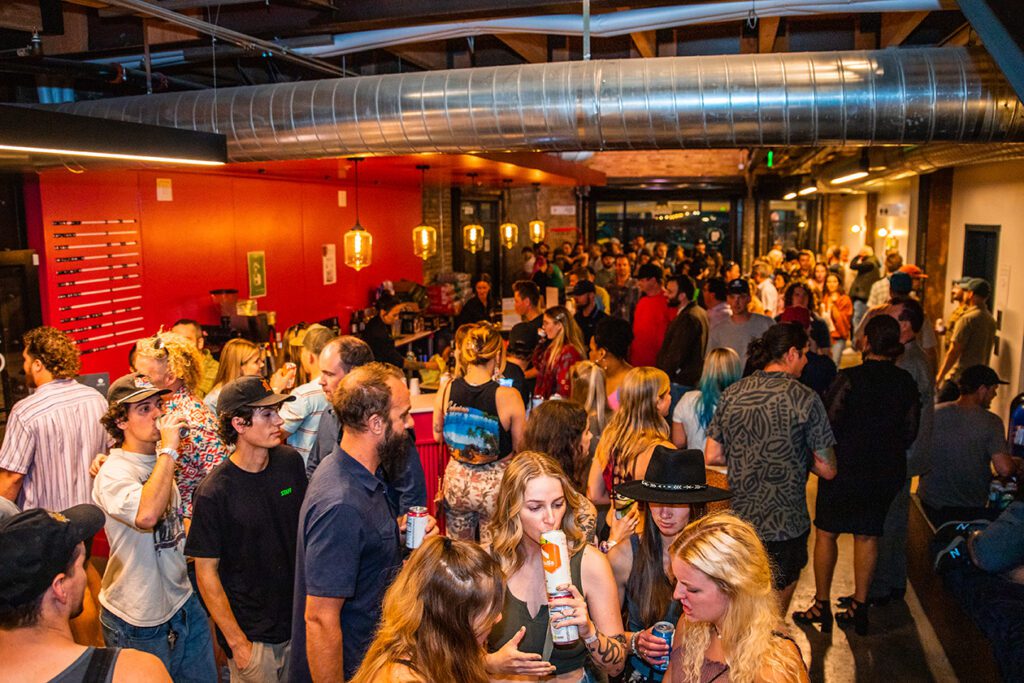
The burgeoning empire
Over the years, as countless retail and online operations in mountain sports launched and closed, Phillips managed to keep evo not only on the map, but on a steady ascent. After he opened the Seattle store, more stores followed, as did an acquisition in mountain-bike retail and, eventually, hospitality. Evo acquired a lodge in Whistler, British Columbia, in 2022, and followed up with the evo campus in SLC, before acquiring a hotel in Hakuba, Japan. Its next hotel project is set to open in Tahoe City, California, in February 2025 – just 50 minutes or so from The Block’s former location.
One key to Phillips’s success has been its economic structure – it’s still privately owned, without the pressures of private equity or other investors – and, according to Phillips, its unique positioning.
“Gone are the days of straight transactional commerce,” he says. “You’re either giant and transactional, or you’re truly speciality – which can be on a larger scale. I like to think that we’ve proven that out. But if you’re in the middle, I think you’re in no man’s land. It’s going to be very, very tough.”
In evo’s earliest days, the company threw weekly parties that were open to the community. Those days might be over, but the open-arms, inclusive ethos becomes more intentional every year. At the opening of the SLC campus, evo opened its doors for what it estimates were about 2,000 people from ages 20 to 50-plus. It reminded Phillips of the company’s infancy. “This means we haven’t totally lost our way,” says Phillips.
So while the ski, snowboard and MTB businesses have had their ups and downs, economically, for him, the fear isn’t so much in moving too fast or welcoming too many people. Phillips, in contrast, isn’t concerned so much about having a kind of permanent welcome mat, but getting complacent with what’s in place.
“We’ve got to be self aware,” he says. “We can’t take it for granted. Because we might think that we’re doing [the right thing] but there’s all kinds of things that don’t make [evo] comfortable. So how can we be conscious of those things and break down the barriers where we inadvertently put them up?”
It’s with that eye to evolution (yes, a bit on the nose) that Phillips views how snowboard travel, business and culture have all changed since he first launched evogear dot com. Part of that has been a collective reaction to global trends and national events. In the US, grassroots efforts to diversify snowboarding’s racial demographics and expand access became prominent and urgent in 2020. That year, the police murder of George Floyd, a Black Minneapolis resident, catalyzed waves of activism and, in some industries, a self-reflective reckoning.
In the snow industry, some organizations and brands responded with audits, reports, and new programs to widen representation and participation. In 2021, the US Ski & Snowboard Association launched a Diversity, Equity, and Inclusion (DEI) self-audit and action plan, and Burton Snowboards launched its annual Culture Shifters event, designed to bring a BIPOC snowboarding community together while bolstering representation.
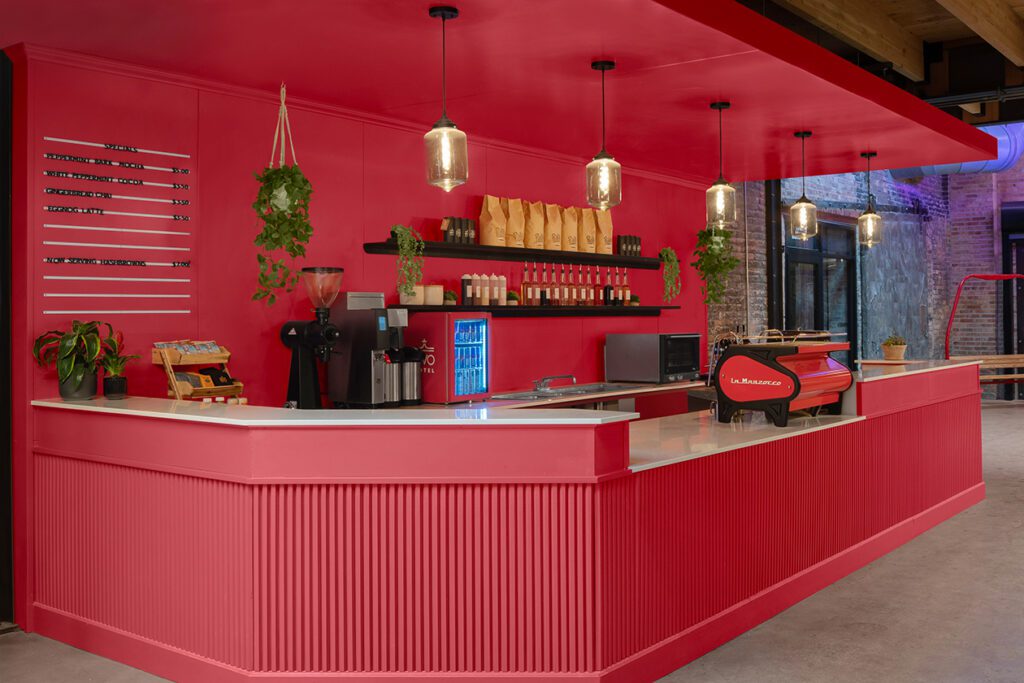
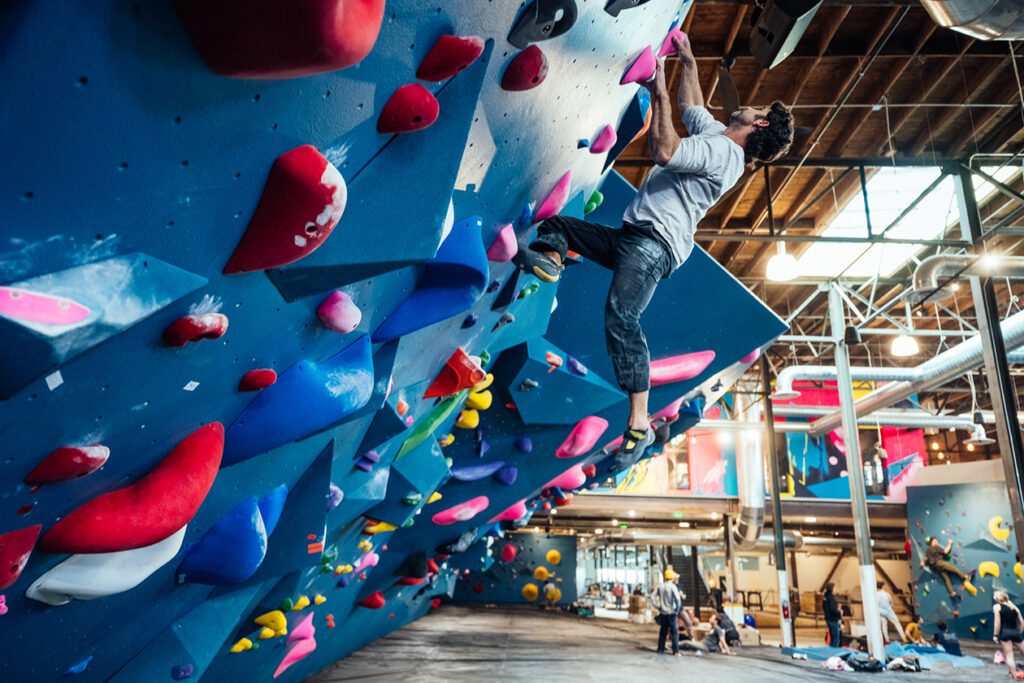
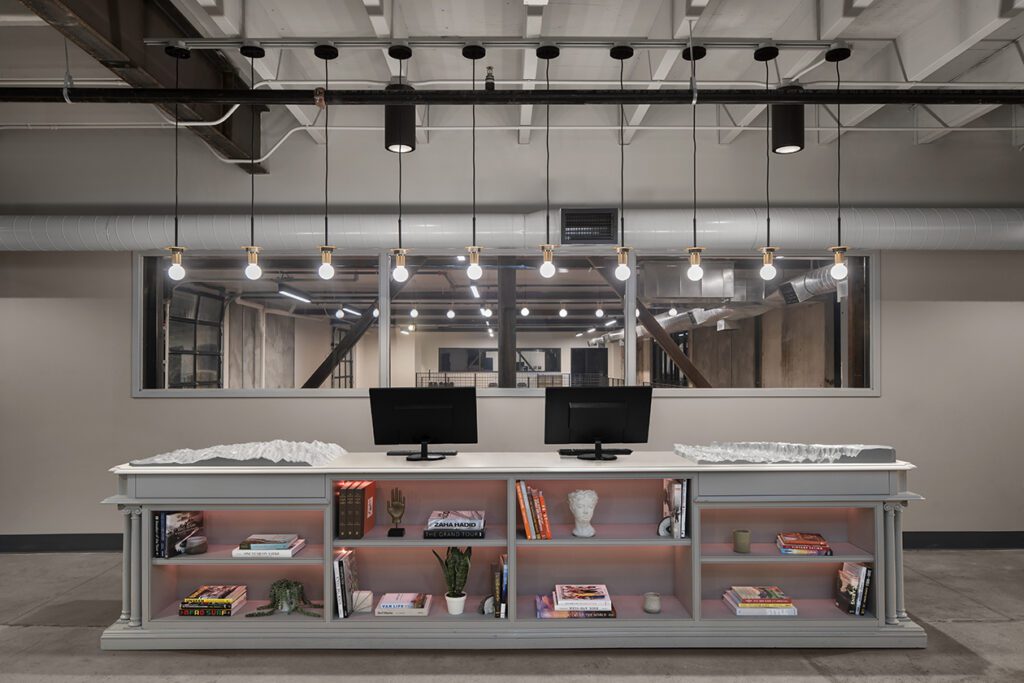
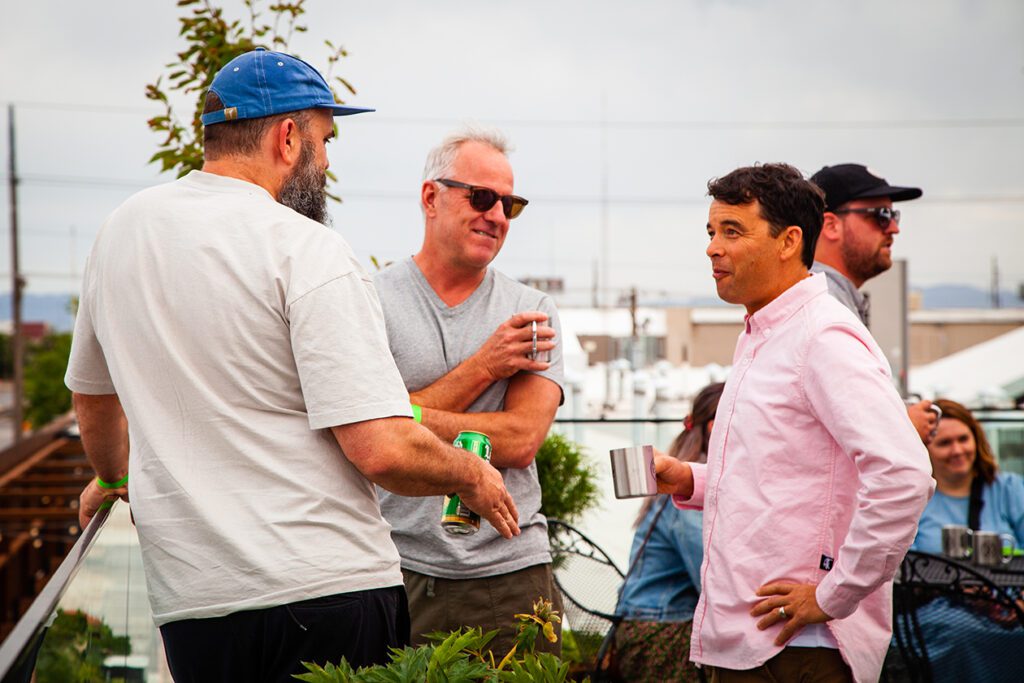
Elsewhere, countless programs and grantmakers are continuing to increase access – Burton has long run Chill, a free snowboard program for teens in a handful of US cities while, since 2017, the Share Winter Foundation has helped tens of thousands of youth access snowsports. And this year Ski Utah is kicking off its fourth annual Discover Winter program, which gives participants free lessons, rentals, cold-weather gear, and transportation.
For Phillips, the impact of that infusion of organizational funding and focus on access has been profound, with tangible work happening on the ground – or the snow. At evo, that work is a continual process of creating an environment with specific values that attracts staff who share those values and, in turn, deliver on them.
“We need to create a gravitational pull for people,” he says, of those who might work at evo – from the front desk to the rental counter to the room attendants. In my brief taste of the evo ethos, that sense of judgment-free care, was palpable and unwavering. A welcoming hotel staff can’t, of course, solve every barrier to falling in love with snowboarding. But for a magical few days, it felt like an embrace from an old friend – but one who’d grown up, matured, and offered a sense of belonging. In other words, a complete 180 from my first forays in snowboard travel.
Looking back on The Block hotel, the distance between snowboarding then and now seems unthinkably vast. Still, says Phillips, it was visionary in its way.
“The brand was to be way too cool,” he says. “That was ahead of its time from a concept perspective. It’s just different from what we’re trying to create now.”

Interview and words by Alba Pardo There is a familiar way Shaun
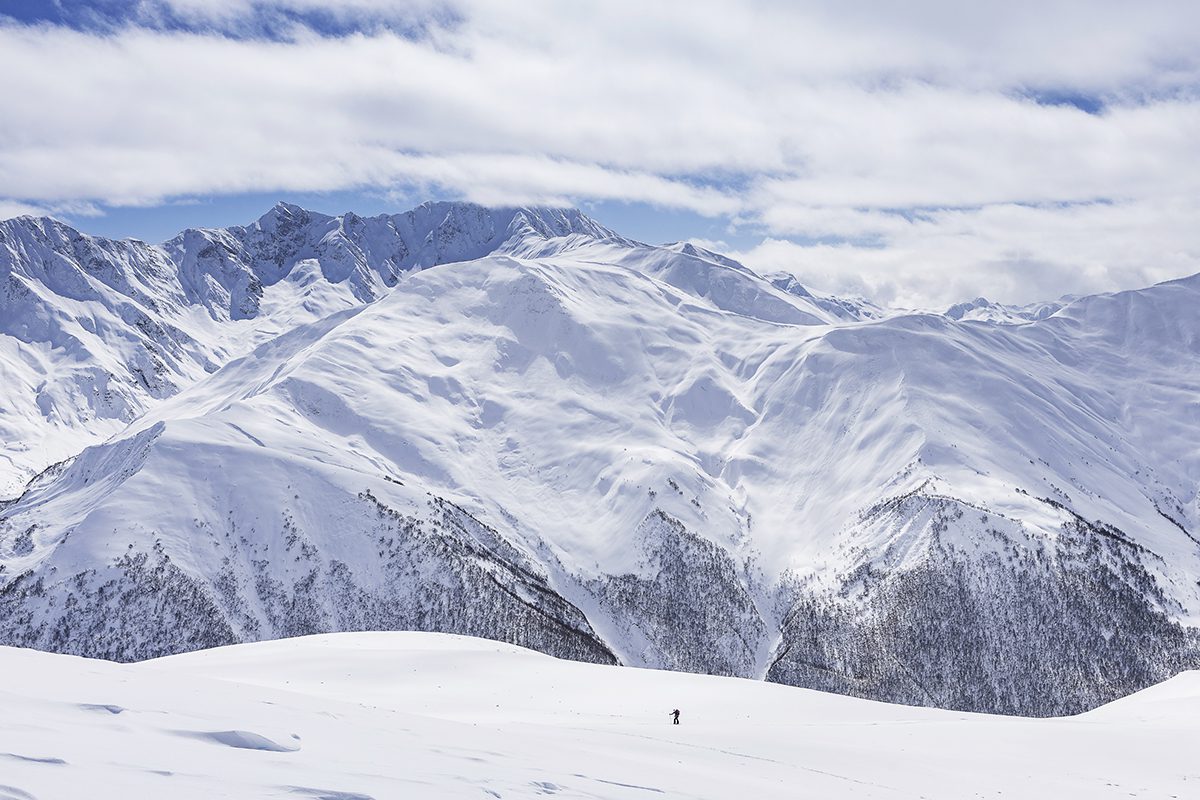
WORDS: ALBA PARDO If there’s one thing snowboarding keeps giving me, it’s
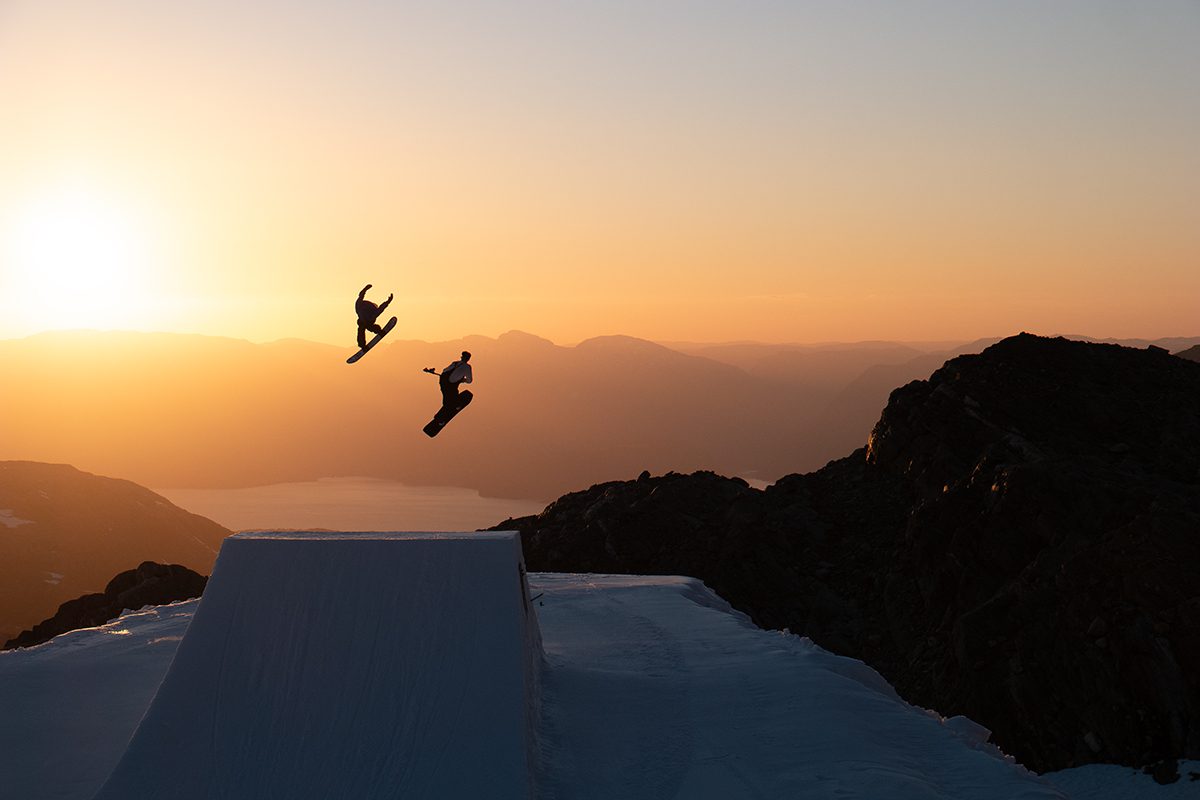
When You’re Not Scared to Dream INTERVIEW: ALBA PARDO From viral follow-cams
Sign up for the very best in snowboard culture, get notified of prize drops, and receive our weekly essential news hit: The Friday Dump.
| Cookie | Duration | Description |
|---|---|---|
| cookielawinfo-checkbox-advertisement | 1 year | The cookie is set by GDPR cookie consent to record the user consent for the cookies in the category "Advertisement". |
| cookielawinfo-checkbox-analytics | 11 months | This cookie is set by GDPR Cookie Consent plugin. The cookie is used to store the user consent for the cookies in the category "Analytics". |
| cookielawinfo-checkbox-functional | 11 months | The cookie is set by GDPR cookie consent to record the user consent for the cookies in the category "Functional". |
| cookielawinfo-checkbox-necessary | 11 months | This cookie is set by GDPR Cookie Consent plugin. The cookies is used to store the user consent for the cookies in the category "Necessary". |
| cookielawinfo-checkbox-others | 11 months | This cookie is set by GDPR Cookie Consent plugin. The cookie is used to store the user consent for the cookies in the category "Other. |
| cookielawinfo-checkbox-performance | 11 months | This cookie is set by GDPR Cookie Consent plugin. The cookie is used to store the user consent for the cookies in the category "Performance". |
| viewed_cookie_policy | 11 months | The cookie is set by the GDPR Cookie Consent plugin and is used to store whether or not user has consented to the use of cookies. It does not store any personal data. |
| Cookie | Duration | Description |
|---|---|---|
| _ga | 2 years | This cookie is installed by Google Analytics. The cookie is used to calculate visitor, session, campaign data and keep track of site usage for the site's analytics report. The cookies store information anonymously and assign a randomly generated number to identify unique visitors. |
| _gat_gtag_UA_189035576_1 | 1 minute | This cookie is set by Google and is used to distinguish users. |
| _gid | 1 day | This cookie is installed by Google Analytics. The cookie is used to store information of how visitors use a website and helps in creating an analytics report of how the website is doing. The data collected including the number visitors, the source where they have come from, and the pages visted in an anonymous form. |
| CONSENT | 16 years 4 months 12 hours | These cookies are set via embedded youtube-videos. They register anonymous statistical data on for example how many times the video is displayed and what settings are used for playback.No sensitive data is collected unless you log in to your google account, in that case your choices are linked with your account, for example if you click “like” on a video. |
| Cookie | Duration | Description |
|---|---|---|
| IDE | 1 year 24 days | Used by Google DoubleClick and stores information about how the user uses the website and any other advertisement before visiting the website. This is used to present users with ads that are relevant to them according to the user profile. |
| test_cookie | 15 minutes | This cookie is set by doubleclick.net. The purpose of the cookie is to determine if the user's browser supports cookies. |
| VISITOR_INFO1_LIVE | 5 months 27 days | This cookie is set by Youtube. Used to track the information of the embedded YouTube videos on a website. |
| YSC | session | This cookies is set by Youtube and is used to track the views of embedded videos. |
| yt-remote-connected-devices | never | These cookies are set via embedded youtube-videos. |
| yt-remote-device-id | never | These cookies are set via embedded youtube-videos. |
| Cookie | Duration | Description |
|---|---|---|
| _pk_id.43969.7c7f | 1 year 27 days | No description |
| _pk_ses.43969.7c7f | 30 minutes | No description |